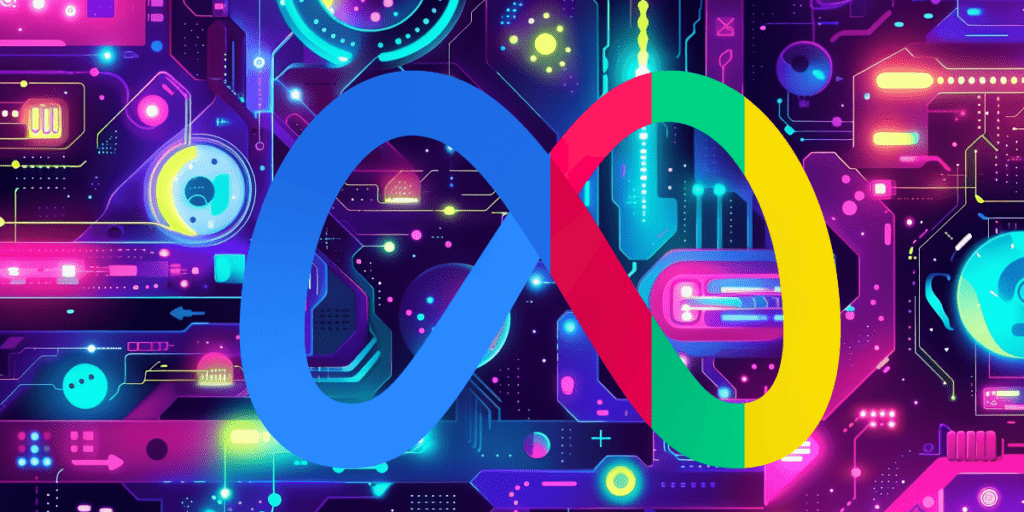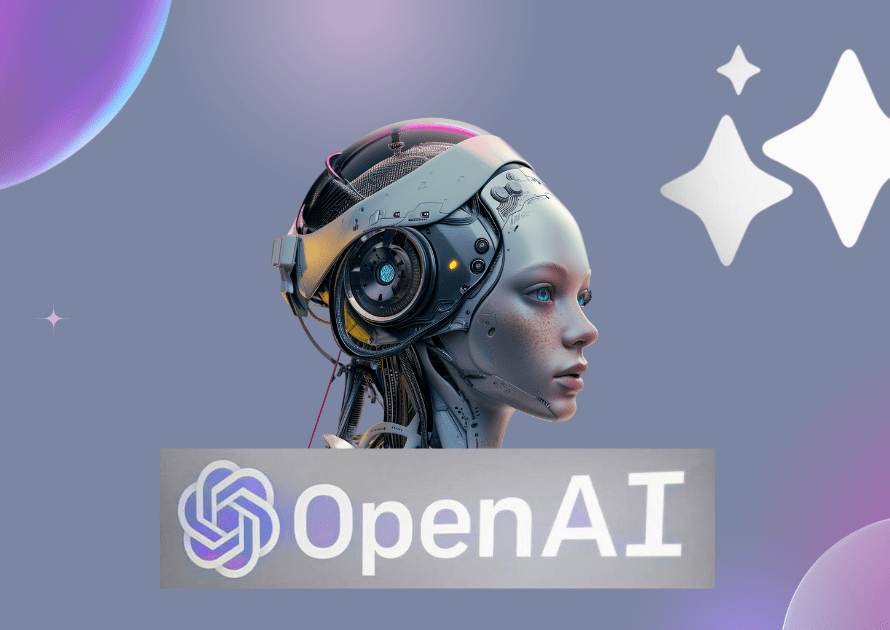Meta AI and Microsoft’s LLaMA 2 are steering the course with strategies and collaborations. Recently, these two giants have joined forces to Release LLaMA 2, a large language model that is free and open-source.
The release of LLaMA 2 marks a milestone in the AI narrative, symbolizing a move towards more open, collaborative developments.
By leveraging Microsoft’s robust Azure cloud platform, LLaMA 2 promises to democratize AI technology, making powerful tools accessible to a broader audience.
Meta AI and Microsoft’s LLaMA 2
LLaMA 2 is built on the principle of open-source accessibility. This philosophy breaks from the traditional proprietary models dominating the tech industry, offering a freely available AI tool for research and commercial use.
Meta and Microsoft advocate for a more inclusive approach to technological development by adopting an open-source framework.
This openness accelerates innovation by allowing developers worldwide to contribute and build upon the model and enhances the model’s security and reliability through widespread scrutiny and rapid iteration.
The release of LLaMA 2 through Microsoft’s Azure cloud platform provides developers and businesses with the robust infrastructure needed to deploy advanced AI applications efficiently.
This accessibility is designed to lower barriers to entry for startups and smaller tech companies, fostering a more diverse technological ecosystem.
Azure’s global reach and advanced cloud capabilities ensure that LLaMA 2 can be utilized by a broad audience, ranging from individual developers to large enterprises, thus democratizing the benefits of AI.
The partnership between Meta and Microsoft combines Meta’s cutting-edge AI research with Microsoft’s expansive cloud infrastructure.
This synergy not only enhances LLaMA 2’s performance and reach but also sets a precedent for future collaborations in the tech sector.

The launch of LLaMA 2 directly challenges the dominance of other tech giants, notably Google, in the AI arena. As Google’s AI models have traditionally led the market, introducing a robust, open-source alternative presents a viable competitor that could shift market dynamics.
Meta AI
Meta AI is deeply integrated within Meta’s extensive network of social and communication platforms, including Facebook, Instagram, WhatsApp, and Messenger.
This integration allows users to access intelligent assistance seamlessly without switching between apps.
Whether providing dinner suggestions based on fridge contents, helping with exam preparation, or creating customized images and GIFs, Meta AI utilizes its sophisticated algorithms to deliver diverse functionalities across different contexts.
Meta AI is designed to be a versatile and accessible assistant that enriches everyday user experiences.
Users can request restaurant recommendations or assistance with math problems directly in their conversations within Messenger.
This capability transforms Meta’s platforms into more than just social or communication hubs; they become integrated support systems that assist users with a wide range of queries and tasks, making technology more practical and user-friendly.
One of Meta AI’s standout features is its ability to generate real-time content, such as animated GIFs, directly within chats.

This not only boosts user engagement by enhancing interactive features but also showcases AI’s potential in creative tasks.
It allows users to instantly create and share content, and with that Meta AI taps into the core of social interactions, making digital communication more prosperous and enjoyable.
Beyond interactive and creative tasks, Meta AI also enhances the search functionalities within each app.
Users can quickly find information or locate specific features within the vast ecosystems of Facebook, Instagram, WhatsApp, and Messenger, all powered by the underlying intelligence of Meta Llama 3.
Microsoft AI
A cornerstone of Microsoft’s AI strategy is its series of strategic alliances, most notably with OpenAI. This partnership, encompassing a multiyear, multibillion-dollar investment, is instrumental in advancing AI research and democratizing access to AI technologies.
Through this collaboration, Microsoft aims to push the boundaries of AI capabilities while ensuring these advancements are ethical and accessible to a broad audience.
The partnership with OpenAI allows Microsoft to integrate groundbreaking AI models like GPT and DALL-E into its suite of products, enhancing their utility and innovativeness.
Its Azure cloud platform is central to Microsoft’s AI offerings, which provide the essential infrastructure for deploying and managing AI applications.
Azure is designed to support large-scale AI models, offering robust computing power and a global network that ensures reliability and scalability.
This platform is a vital resource for developers and businesses looking to harness advanced AI without the overhead of building and maintaining their own infrastructure.
Azure’s AI services, including machine learning and cognitive services, empower users to quickly develop, deploy, and refine AI solutions.
Microsoft integrates AI across its entire product ecosystem, enhancing consumer and enterprise applications.
For developers, tools like GitHub Copilot offer AI-powered coding assistance, significantly improving productivity and code quality.
For consumers, AI-enhanced features in products like Microsoft 365 improve user experience with more innovative, responsive applications.

In enterprise settings, AI functionalities are embedded in solutions that streamline operations and offer predictive insights, which are crucial for decision-making and operational efficiency.
The company also provides AI-optimized tools that cater to specific industry needs. This includes specialized applications in healthcare, finance, and manufacturing, where AI can provide transformative benefits.
User Experience
Meta AI focuses on enriching user interactions within Meta’s ecosystem, including social media platforms like Facebook, Instagram, WhatsApp, and Messenger.
By integrating AI directly into these platforms, Meta ensures that users can access intelligent assistance seamlessly.
This integration is geared towards making daily social interactions more engaging and personalized. For instance, Meta AI can assist users in generating content, managing tasks, and obtaining information without ever leaving their chat window.
This enhances the user experience and keeps interactions within Meta’s platforms, boosting engagement and platform stickiness.
Meta AI excels in applications deeply integrated into users’ daily lives, such as personal assistants that help with planning, shopping, and content creation.
The AI is designed to operate invisibly in the background, providing assistance within the flow of existing interactions, making technology use more intuitive and less intrusive.
Microsoft AI emphasizes providing robust platforms and tools for developers and businesses, focusing on enhancing productivity and operational efficiency across various industries.

Microsoft’s AI solutions are embedded in its cloud platform, Azure, and extend across its entire suite of products, from enterprise applications to developer tools like GitHub Copilot and AI models like ChatGPT and DALL-E.
This approach empowers organizations to leverage AI for complex, scalable solutions that can transform business operations and decision-making processes.
Microsoft leverages its Azure platform to provide scalable AI solutions that can be customized for different industries, including healthcare, finance, and retail.
The AI offerings are aimed at enhancing productivity and capabilities in professional settings, providing developers and businesses with tools to create sophisticated AI applications.
Meta’s platforms’ users benefit from AI that enhances their social interactions and daily tasks, making digital communication more prosperous and engaging.
This user-focused approach aims to make AI interactions as natural and helpful as possible.
Microsoft’s users, primarily developers and business professionals, gain access to powerful AI tools that drive innovation and efficiency.
Final Thoughts
Meta’s integration of AI across its social platforms and Microsoft’s emphasis on infrastructure and partnerships reflect their respective visions for the future of AI and its application in both personal and professional realms.
Meta AI’s approach to seamlessly enhancing user experience on social platforms by integrating advanced AI capabilities speaks to a broader trend of technology becoming more intertwined with daily life.
The user-oriented applications enhance interaction and foster a deeper connection between users and technology, making digital experiences more engaging and intuitive.
On the other hand, Microsoft’s AI strategy, with its strong foundation in Azure and significant partnerships like that with OpenAI, positions it as a leader in developing and deploying AI solutions for businesses and developers.
This focus ensures that Microsoft remains at the forefront of enterprise-level AI applications, driving innovation and efficiency across various industries.
The collaboration between Meta and Microsoft in releasing LLaMA 2 as an open-source AI model exemplifies a pivotal shift towards openness and accessibility in AI technologies.
This move challenges the traditional proprietary norms and encourages a more collaborative and transparent approach in the tech industry.
Looking forward, the impact of these developments will be profound. As AI technology continues to evolve, the strategies employed by Meta and Microsoft will influence their trajectories and shape the broader technological landscape.
The increasing democratization of AI tools, commitment to ethical standards, and integration of AI into everyday applications forecast a future where AI enhances every aspect of our digital interactions.


